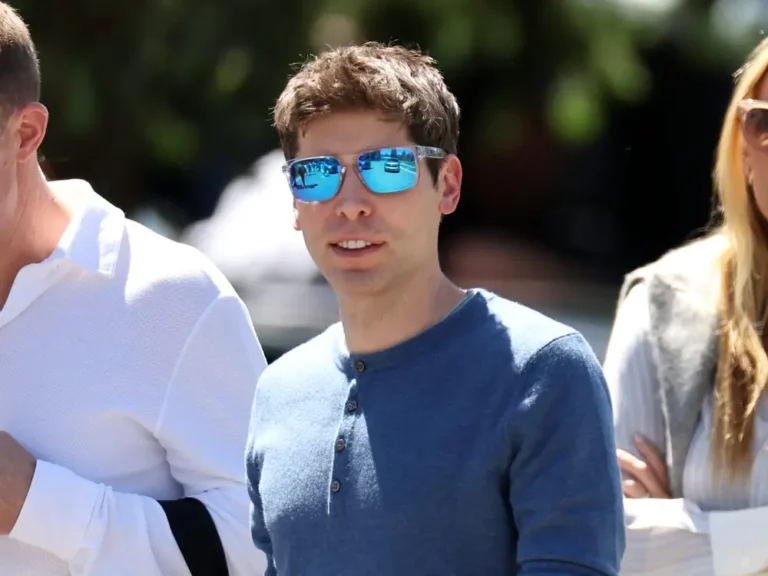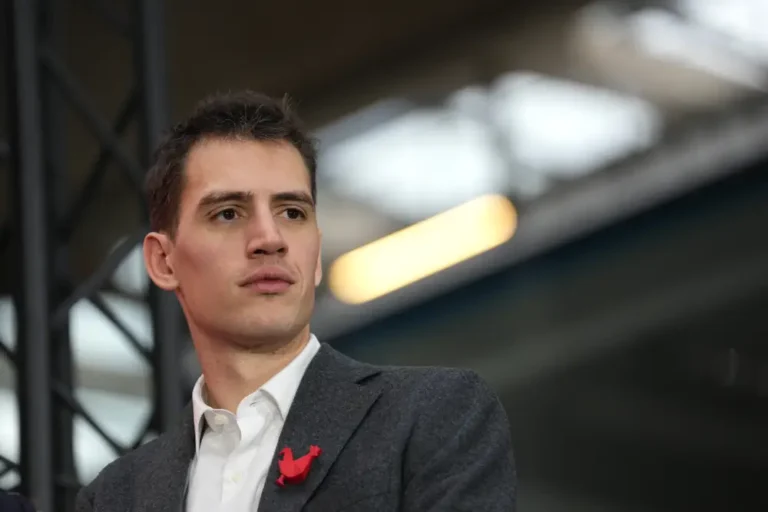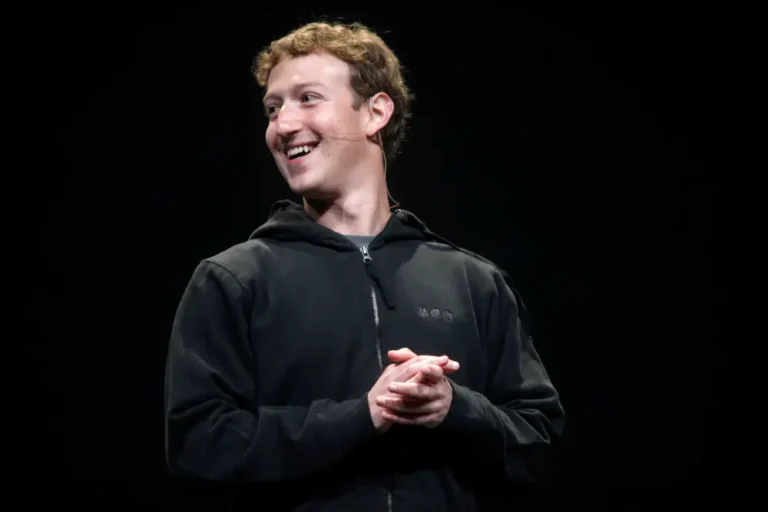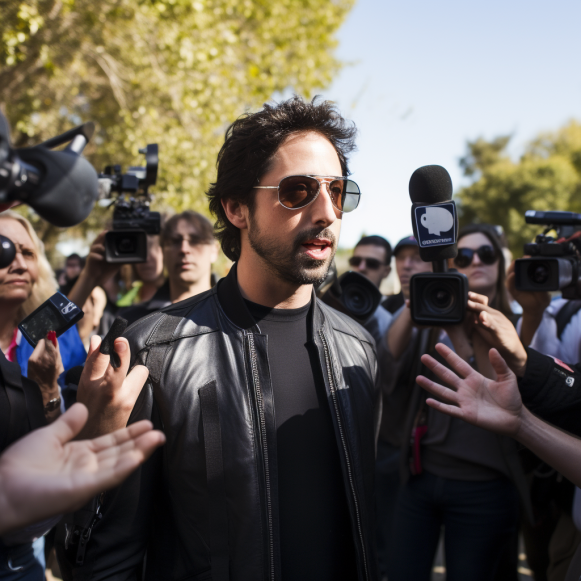Public salary data reveal how much xAI pays some workers compared to OpenAI
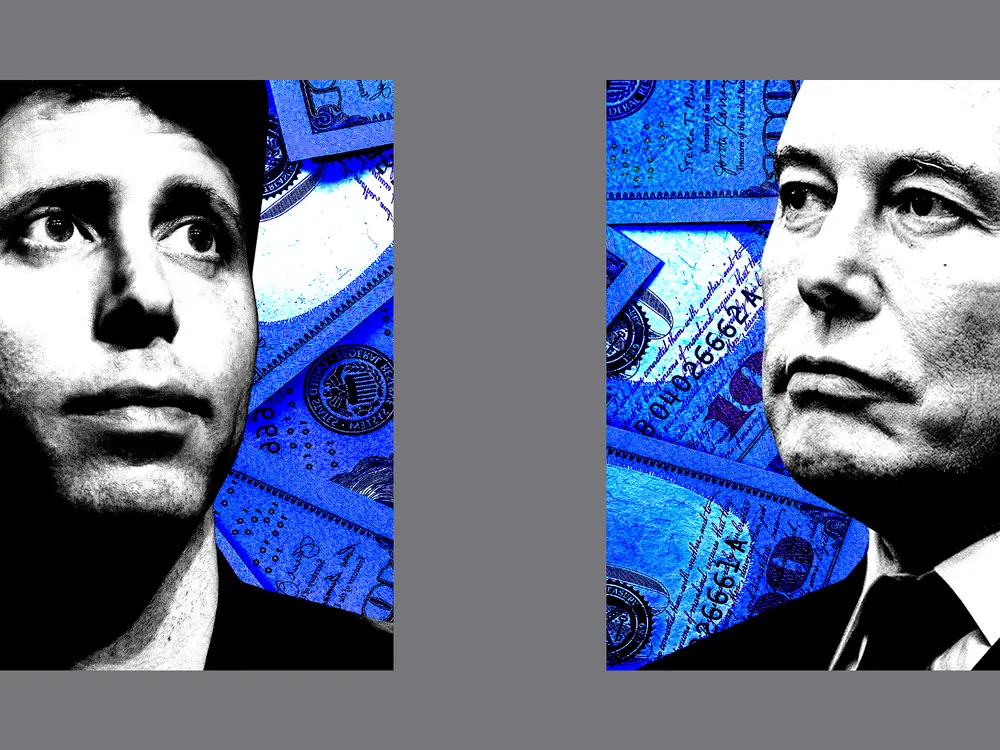
As the artificial-intelligence industry continues to attract attention, power, and billions of dollars in funding, two major players — Elon Musk’s xAI and Sam Altman’s OpenAI — are locked in a contentious battle over talent. Musk filed a lawsuit in August accusing Altman’s company of offering “lavish compensation” to “starve competitors.”
To examine Musk’s claims about salaries, B-17 analyzed wage data from specialty visa applications for each company from 2024. While both offered compensation well above typical industry wages for the handful of roles for which data was available, OpenAI paid some of its staff an even higher premium over standard rates.
The documentation that companies must file when hiring foreign workers on specialty visas like the H-1B provides a window into otherwise private compensation data at both firms and gives rare insight into the expensive war for AI talent.
xAI is only a fraction of the size of OpenAI; the company employs about 100 workers, compared with about 3,000 at OpenAI, PitchBook reported.
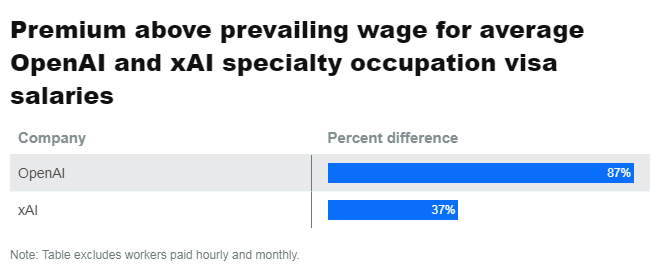
xAI reported pay data for 10 worker applications, compared with OpenAI’s 86 worker applications. The companies paid 37% and 87%, respectively, above the typical industry wage — or “prevailing wage” — for the roles surveyed, based on data from US Customs and Immigration Services.
The prevailing wage is determined by the Department of Labor. It represents the average wage paid to workers in a particular occupation within a defined geographic area. Employers who hire workers on specialty visas like H-1Bs must pay them at least as much as the prevailing wage.
The data found that pay for the 10 xAI roles with specialty visa applications ranged from $250,000 to $500,000. At the top end, xAI paid one worker nearly double the prevailing wage for the role of principal machine learning engineer.
Among the 86 roles with available data on specialty visa applications, OpenAI paid between $145,000 and $530,000, with one member of the company’s technical staff earning more than three times the prevailing wage for the role.
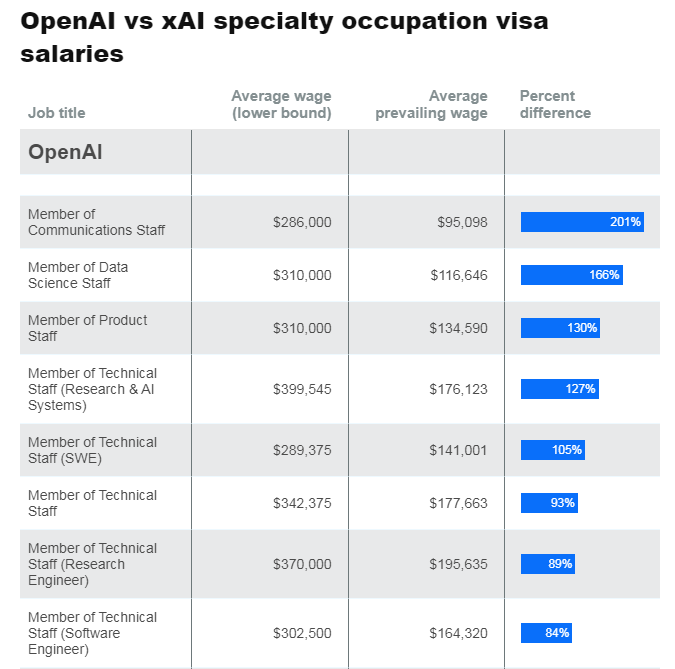
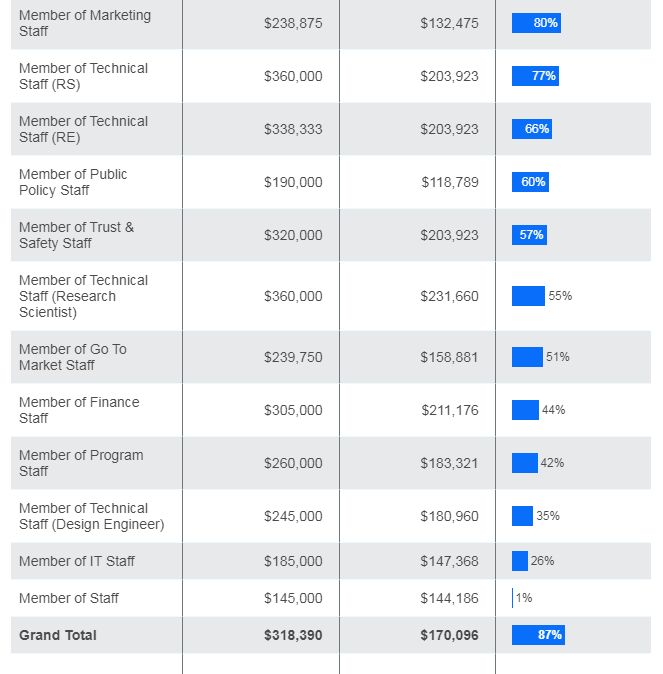
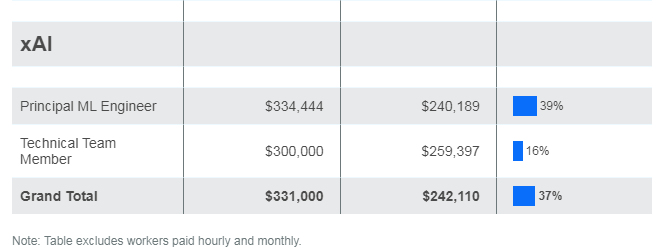
In the table above, B-17 compared the average salary for each job title included in the USCIS data for the two companies to the average prevailing wages for those titles.
The data offers some insight into how Musk’s company approaches compensation amid a legal battle that has reignited the feud between Musk and Altman.
The pair cofounded OpenAI in 2015, and Musk was one of several Silicon Valley investors to collectively pledge $1 billion to the venture. He resigned from OpenAI’s board of directors in 2018, citing a potential conflict of interest due to Tesla’s work with artificial intelligence.
Since then, Musk has repeatedly bashed OpenAI and Altman, saying the company is “not what I intended at all.” Musk sued OpenAI and its CEO earlier this year but withdrew the lawsuit, only to file a new suit in August. In addition to claims about OpenAI’s allegedly anticompetitive practices, lawyers for Musk said that he was “deceived” and “manipulated” into cofounding the company.
“This suit is the latest move in Elon Musk’s increasingly blusterous campaign to harass OpenAI for his own competitive advantage,” OpenAI’s attorneys wrote in motion to dismiss Musk’s latest lawsuit. Since launching xAI Musk “has been trying to leverage the judicial system for an edge,” they added.
Musk, Altman, and representatives for xAI and OpenAI did not respond to requests for comment.
Emails between Musk, Altman, and other OpenAI workers between 2015 and 2016 showed that Musk repeatedly emphasized the importance of recruiting top AI talent.
In the exchanges, which were included as part of Musk’s most recent lawsuit, Musk wrote that recruitment should be OpenAI’s “most important consideration,” and the company should do “whatever it takes to bring on ace talent.”
In April, Musk said xAI brought over a Tesla engineer after OpenAI began “aggressively recruiting” workers from the electric-car maker. Based on a review of LinkedIn profiles, xAI has hired at least nine former OpenAI employees, including xAI cofounder Igor Babuschkin, since Musk launched xAI in 2023.

